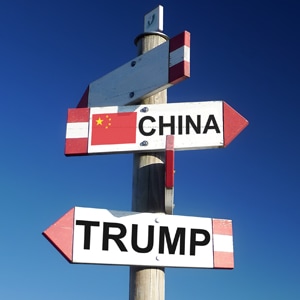
What will Donald Trump really do about America’s $30 billion-a-month trade deficit with China? Important clues can be excavated from a 35-page essay that has been gathering dust since 2010 in the archives of the US-China Economic and Security Review Commission. The testimony in question was submitted by Robert Lighthizer, a veteran attorney from the Washington office of prestigious firm Skadden Arps who is now Trump’s pick for US Trade Representative.
Lighthizer did not mince words in deriding Washington’s “very passive … response to Chinese mercantilism.” He blamed as many as 2.4 million lost American jobs on Beijing’s tactics since it joined the World Trade Organization in 2001, and he advocated branding China as a currency manipulator—an idea that became a Trump centerpiece on the campaign trail.
Yet Lighthizer’s proposed remedies bear the mark of a judicious career lawyer, not the broad-brush populism of his potential boss-to-be. He calls on authorities to “aggressively enforce our … antidumping and countervailing duty laws” and “consider very aggressive positions at the WTO.” He does raise “tariffs or quantitative limitations” as a sort of nuclear option if all else fails to contain China. But this is not a man who would start discussions with a blanket 45% tariff on Chinese imports, as Trump has advocated.
The trade czar nominee first achieved prominence as deputy USTR under Ronald Reagan, helping negotiate voluntary restraints on European and Asian steel exports to the United States in the mid-1980s. He has waxed nostalgic for the “pragmatism” of those days. “Conservative statesmen from Alexander Hamilton to Ronald Reagan sometimes supported protectionism and at other times they leaned toward lowering barriers,” he wrote in the New York Times in 2008. US steel output has slumped by about 35% since Reagan took office in 1980, and steel industry employment has fallen by two thirds.
On balance, Lighthizer looks like one of the Trump cabinet members who will seek to moderate the new president’s more extreme rhetorical positions and channel them through the much-despised mechanisms of the Washington and global establishment. How well he succeeds remains to be seen.



